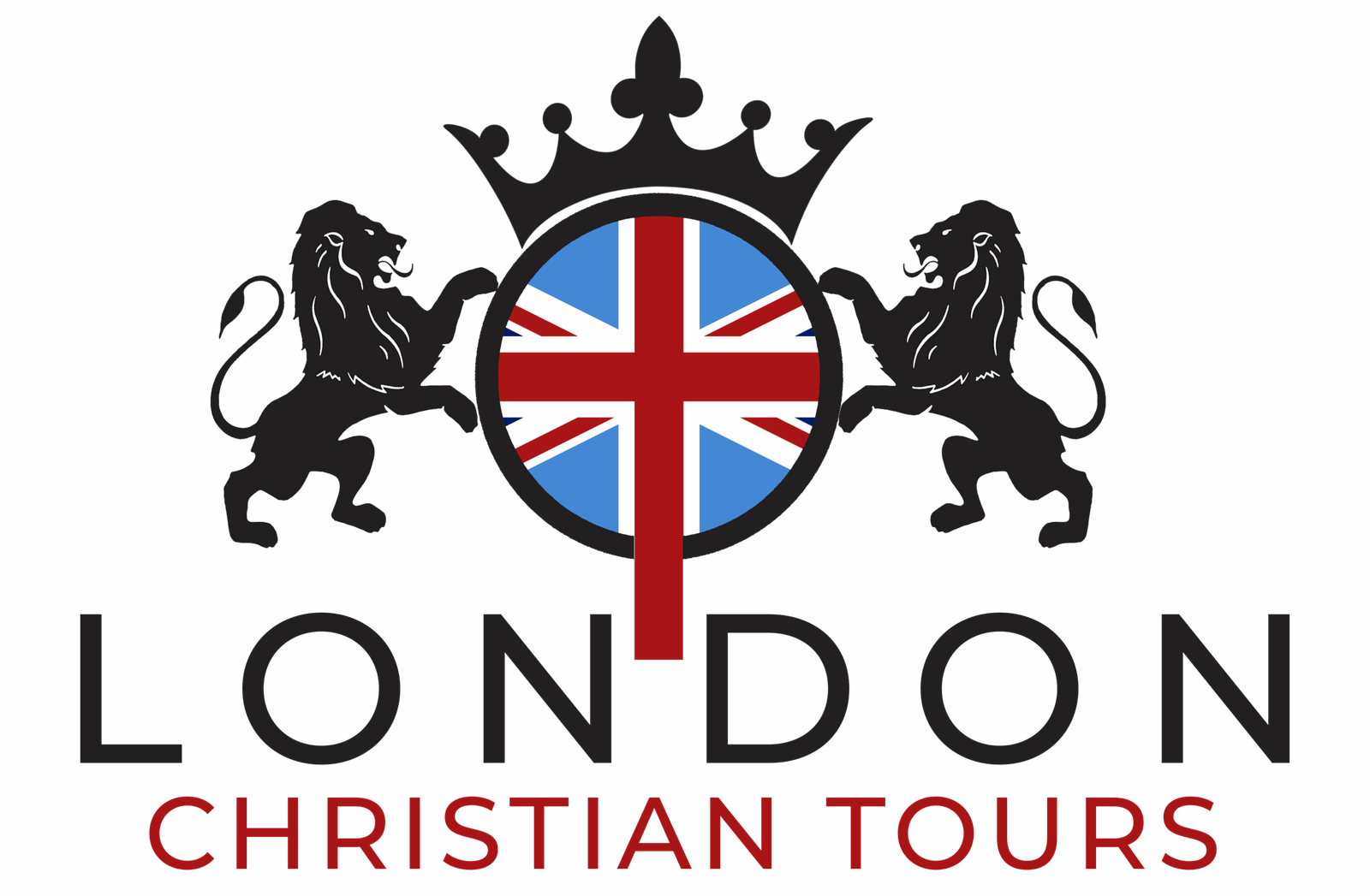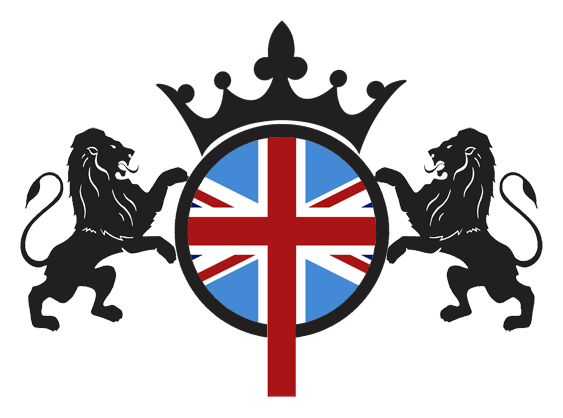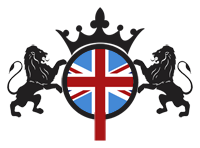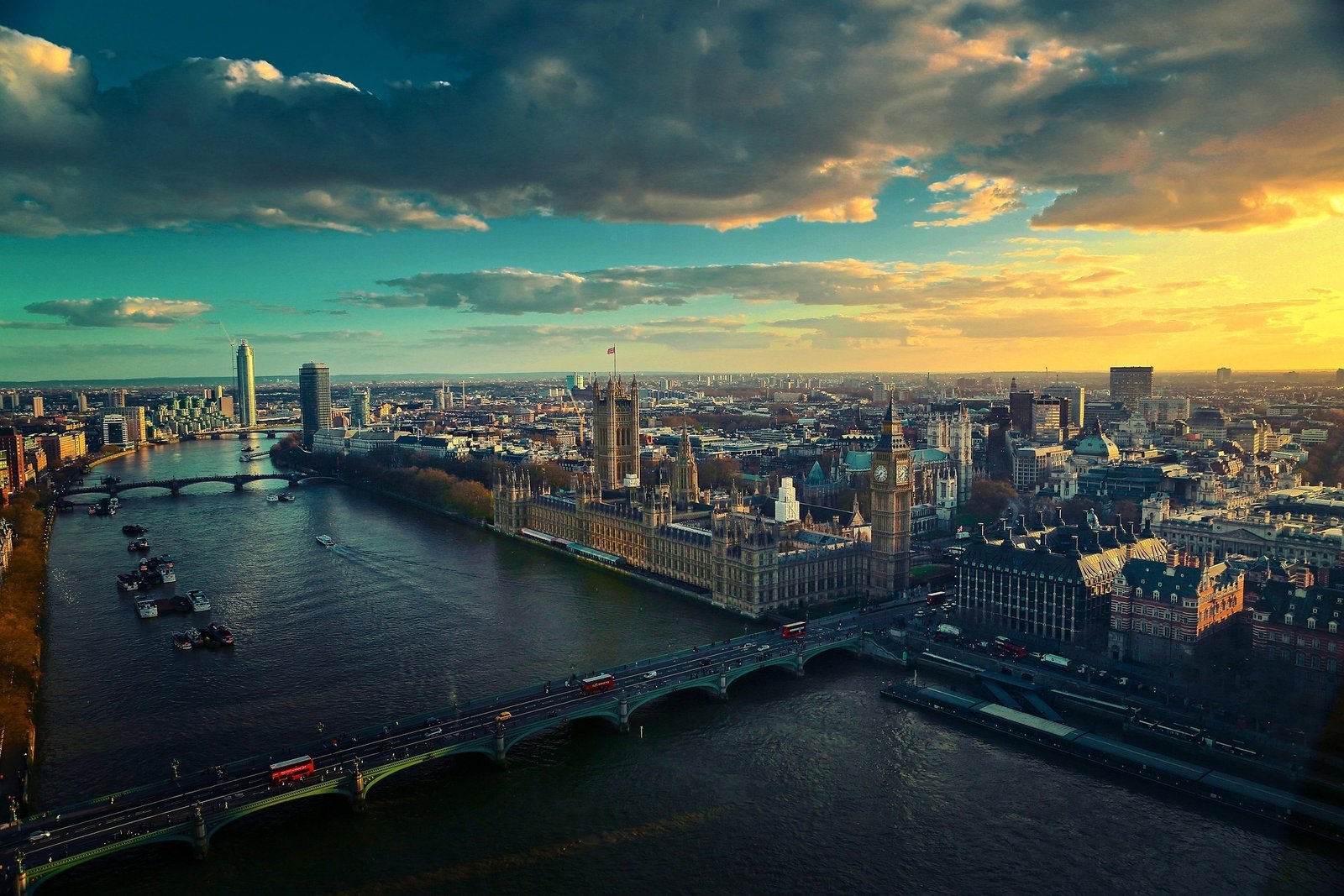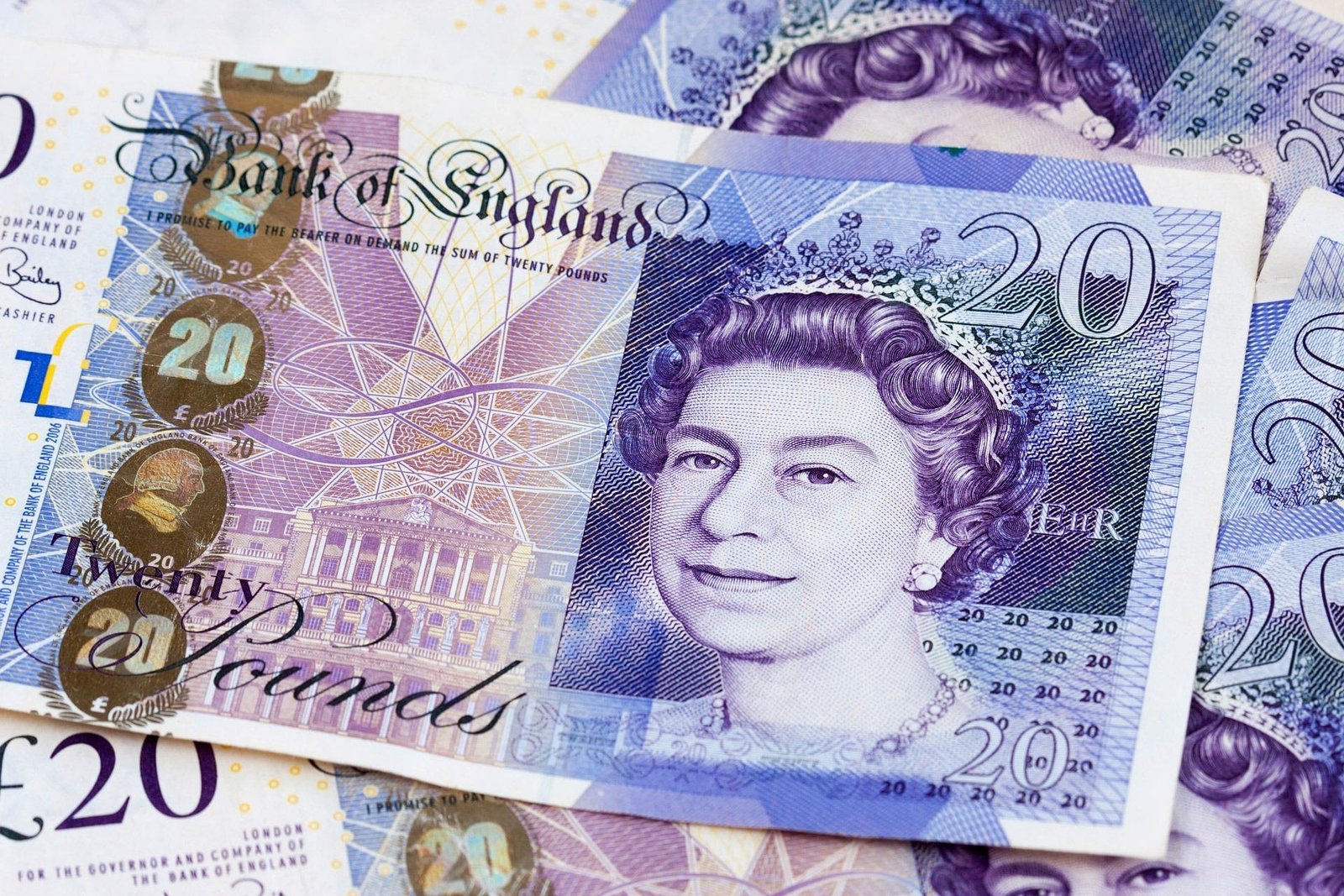
Currency in the United Kingdom
Money Matters: Handling Currency on Your London Christian Tour
One of the most common questions travelers ask before heading overseas is: How do I handle money abroad? It’s a fair question—no one wants to pay unnecessary fees or end up with a pocket full of coins they can’t use once they’re back home. Since we get this question often, here are a few practical tips for your time in London (and beyond).
The Pound
In the United Kingdom, the official currency is the Great British Pound (GBP). Unlike many other parts of Europe, the UK has never switched to the Euro. So unless you’re traveling into neighboring countries after your tour, you won’t need Euros at all.
Think of the pound as the British version of the dollar, and pence as their cents. A few differences, though: there are no one-pound bills. Paper notes come in £5, £10, £20, and £50, while £1 and £2 are coins. Smaller coins are pence, written simply as “p.” So if you see something marked 50p, that’s fifty pence—basically fifty cents in our American system.
Do You Even Need Cash?
Here’s the surprising part: you may not need pounds at all. On many of our trips we’ve used cards the entire time without ever touching cash. Since credit and debit cards often give the best exchange rate, this can also be the cheapest way to spend. Still, it’s not a bad idea to keep a little cash in your pocket for small shops, tips, or emergencies. It’s also fun just to have and bring home a few small bill or coins as keepsakes of your experience in the UK.
Exchanging Money
If you do want to carry some British pounds, here are a few tips to make the most of your exchange:
- Skip the airport counters. Airport exchange desks usually have the worst rates—think of it like renting a car at the airport.
- Exchange before you travel. Whether in the US or UK, you’ll pay a fee, but since the pound is stronger, you’ll usually lose less if you change dollars into pounds here at home.
- Check with your bank. Many banks can order foreign currency at better rates than exchange shops. It may take a few days, so plan ahead.
- Use ATMs abroad. This is often the most cost-effective way to get local cash and our #1 recommendation. ATMs give you the real bank exchange rate, which is usually far better than what a counter offers. Even if your bank charges a small fee, it’s often still cheaper. Bonus tip: some US banks partner with UK banks, waiving ATM fees altogether.
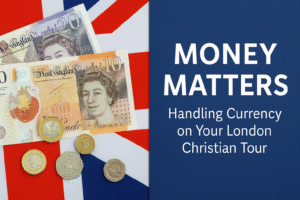 Credit Cards: Your Best Friend Abroad
Credit Cards: Your Best Friend Abroad
For most travelers, credit cards are the simplest, safest, and cheapest way to pay. Here’s why:
- Chip cards are standard. In the UK, stores often use “chip and pin.” If your card doesn’t have a pin, you’ll still be able to use it—you’ll just sign instead.
- No foreign transaction fees. This is the golden ticket. Many travel or premium cards skip these fees, which means you get the market exchange rate without paying extra. Each purchase works like a free currency exchange, and you never end up with leftover cash you can’t use.
The Bottom Line
Here’s the quick summary:
- Use a credit card with no foreign transaction fees whenever possible.
- ATMs are your best option for a little cash when needed.
- Avoid airport exchange counters—they’re the most expensive.
- Don’t stress too much—you may not need pounds at all!
With just a little planning, you’ll be able to spend smart, avoid hidden costs, and focus on the far more exciting things—like walking through the British Museum, exploring historic cathedrals, and seeing the Bible come to life in London.
